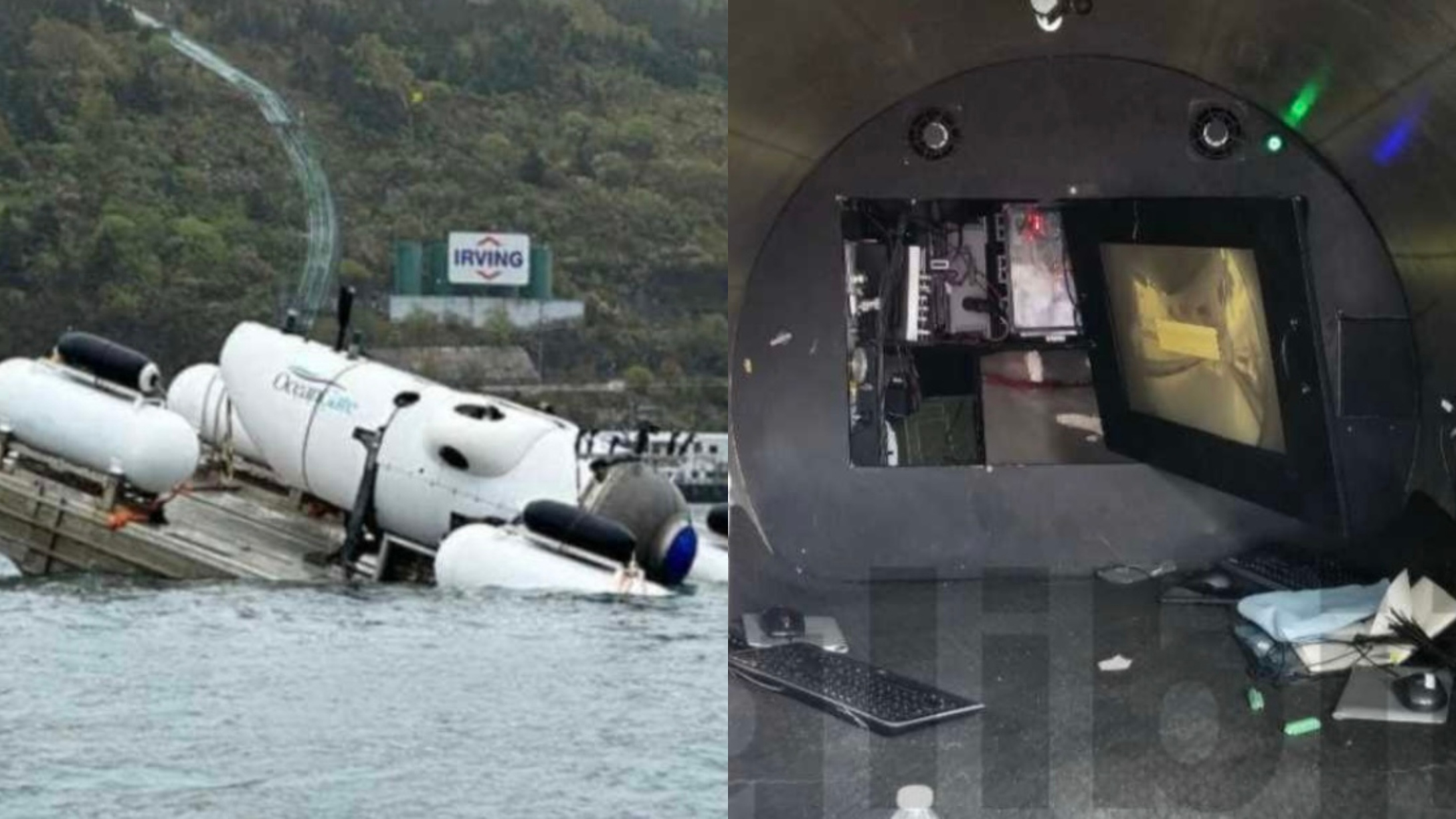
It's hard to believe it's been a year since the Titan submersible primed a group of wealthy men for a once-in-lifetime trip to the site of the Titanic wreck at the bottom of the ocean. That trip ended in unbelievable tragedy. The bodies of OceanGate Inc. CEO and Titan captain Stockton Rush, 61, and four passengers are still missing. He, along with Hamish Harding, 58, Paul-Henri Nargeolet, 77, Shahzada Dawood, 48, and his son Suleman Dawood, 19, were known for their love of adventure, but some say they should have known better than to board the Titan.
One father and son backed out of the trip after learning of mounting concerns over the vessel's safety. Sean Bloom, 21, told People he has no survivor guilt and is glad he convinced his Las Vegas financier father, Jay Bloom, to back out of the mission. A year later, many are still searching for answers about what happened and how the voyage went so dreadfully wrong.
More from CafeMom: 'Titan' Submersible Tragedy: Everything We Know About the Victims
Sean Bloom wasn't confident in Rush.
In the months leading up to the mission, Sean Bloom told People he had considered the safety of the mission and convinced his father that it was not a good idea to board the Titan.
"Every time I asked him important questions, not just about the safety, but about the project itself or who's behind it and who's involved, he dodged them. He flipped it around on me and got mad just for questioning him. He would say I was young; I didn't understand the industry. So I said we just aren't going to go," he recalled.
Their seats ultimately went to another father and son.
Shahzada and Suleman Dawood took the Blooms' place on the Titan and perished in the implosion, along with everyone else onboard. Sean Bloom said he was sad about the Titan's fate, but he and his father don't feel guilty.
"We don't really have survivor's guilt. I'm very glad that we made the right decision not to go with Stockton. We knew it wasn't going to work out and it was a sketchy operation," he said.
Sean Bloom added that he believed his faith helped him avoid tragedy.
He's relied on his faith in God to get him through many precarious situations and feels this was another one of those times.
"I've had a lot of crazy things happen to me, and the submersible incident was just another moment God has gotten me out of — and He's gotten me out of a lot," he told People.
He feels sorry for those who lost their loved ones.
Sean Bloom isn't callous to the unfathomable loss the families of those onboard the Titan experienced. He told People he prays for everyone involved.
"It was a blessing that we didn't go. It was a close call and I feel horrible for the family that did go and everyone else that was on that sub. I pray for them and hope their lives get easier," he said.
More from CafeMom: Debris From 'Titan' Submersible Recovered With 'Presumed Human Remains' Inside
Experts are still searching for answers.
NPR reported that the US Coast Guard Marine Bureau of Investigations is still investigating contributing factors, and while the investigation is still active, it is simply not complete.
"The investigation into the implosion of the Titan submersible is a complex and ongoing effort," MBI Chair Jason Neubauer said in a statement. "We are working closely with our domestic and international partners to ensure a comprehensive understanding of the incident."
Neubauer added that the investigation is still ongoing for multiple reasons.
"Several factors have extended the original 12-month timeline for the investigation. These include the need to contract two salvage missions to secure vital evidence and the extensive forensic testing required, which has led to necessary delays," he said.




